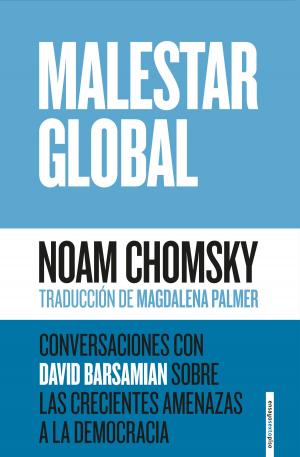Gorée's Unwavering Songs Poetry
Fiction & Literature, Literary Theory & Criticism, Poetry History & Criticism, Poetry| Author: | Femi Ojo-Ade | ISBN: | 9780998479613 |
| Publisher: | AMV Publishing Services | Publication: | March 14, 2017 |
| Imprint: | AMV Publishing Services | Language: | English |
| Author: | Femi Ojo-Ade |
| ISBN: | 9780998479613 |
| Publisher: | AMV Publishing Services |
| Publication: | March 14, 2017 |
| Imprint: | AMV Publishing Services |
| Language: | English |
Femi Ojo-Ade’s new poetry collection, Gorée’s Unwavering Songs comes a few years after his first, the honourably mentioned Exile at Home. The wait, one daresay, is worth it. This collection is poignant and thought-provoking. The poems delve into the innermost confines of Africa’s soul to address myriad issues stemming from the dual tragedies of slavery and colonialism. At the basis lie the multifarious forms of black experience in Africa and the Diaspora. There is none other more qualified to explore the bitter-sweet life of the continental and the diasporic than Ojo-Ade whose birth and background, as well as personal and professional existence, are encompassed by both sites, such as Nigeria, The Gambia and Senegal, and the Americas and Brazil.
The titles in the collection are proof enough of the poet’s deep knowledge of the spaces explored and the intricate, inescapable linkage between the two homes of Blacks. According to the poet, the black experience is a continuum over generations and eras. Africa is nothing without the Diaspora. African poetry follows its own particular drumbeat; similar to jazz, it emanates from spontaneity. An authenticity dipped in the sweat and blood of those that have seen their midday suddenly or slowly become midnight. The rhythm of Africa’s soul reverberates throughout these poems. There is embedded the syncopated percussion of much pain, and pride in a culture maligned but magnificent in its very core.
“In these poems Ojo-Ade uses the metaphor of Gorée Island, in its double meaning: as “the door of no return” for millions of African slaves, and as the location that historically links Africa to its Diaspora. From this metaphorical locus, the poet poses to the reader a fundamental question: What is the actual situation of Black people, both in Africa and all over the world, in the so-called contemporary global village society? These poems/songs—at moments denunciatory and harshly critical, at others tender, hopeful and proud—, make evident that Black people’s human aspirations remain mainly unfulfilled. Departing from this realization, in the so-called global village the poet calls/sings for an unwavering revolution of the mind and the heart that will (re)unite all Black people to finally achieve total human dignity and true freedom.”
—ISRAEL RUIZ, Professor of Afro-Hispanic Studies, St. Mary’s College of Maryland, USA
Gorée’s Unwavering Songs is a poignant work of remembrance that captures the beginning of the historical derailing of Black humanity. Ojo-Ade’s preoccupation with the Black experience worldwide is reminiscent of the Pablo Neruda’s love of his people. The songs remind us of what most people re-shaped by history want to forget but which the wise want to remake. Ojo-Ade’s voice, expressed in free verse in this volume, is a voice we must not miss.
—ROPO SEKONI, retired Professor of English, Lincoln University, USA, and columnist, The Nation, Lagos-Nigeria
Femi Ojo-Ade’s new poetry collection, Gorée’s Unwavering Songs comes a few years after his first, the honourably mentioned Exile at Home. The wait, one daresay, is worth it. This collection is poignant and thought-provoking. The poems delve into the innermost confines of Africa’s soul to address myriad issues stemming from the dual tragedies of slavery and colonialism. At the basis lie the multifarious forms of black experience in Africa and the Diaspora. There is none other more qualified to explore the bitter-sweet life of the continental and the diasporic than Ojo-Ade whose birth and background, as well as personal and professional existence, are encompassed by both sites, such as Nigeria, The Gambia and Senegal, and the Americas and Brazil.
The titles in the collection are proof enough of the poet’s deep knowledge of the spaces explored and the intricate, inescapable linkage between the two homes of Blacks. According to the poet, the black experience is a continuum over generations and eras. Africa is nothing without the Diaspora. African poetry follows its own particular drumbeat; similar to jazz, it emanates from spontaneity. An authenticity dipped in the sweat and blood of those that have seen their midday suddenly or slowly become midnight. The rhythm of Africa’s soul reverberates throughout these poems. There is embedded the syncopated percussion of much pain, and pride in a culture maligned but magnificent in its very core.
“In these poems Ojo-Ade uses the metaphor of Gorée Island, in its double meaning: as “the door of no return” for millions of African slaves, and as the location that historically links Africa to its Diaspora. From this metaphorical locus, the poet poses to the reader a fundamental question: What is the actual situation of Black people, both in Africa and all over the world, in the so-called contemporary global village society? These poems/songs—at moments denunciatory and harshly critical, at others tender, hopeful and proud—, make evident that Black people’s human aspirations remain mainly unfulfilled. Departing from this realization, in the so-called global village the poet calls/sings for an unwavering revolution of the mind and the heart that will (re)unite all Black people to finally achieve total human dignity and true freedom.”
—ISRAEL RUIZ, Professor of Afro-Hispanic Studies, St. Mary’s College of Maryland, USA
Gorée’s Unwavering Songs is a poignant work of remembrance that captures the beginning of the historical derailing of Black humanity. Ojo-Ade’s preoccupation with the Black experience worldwide is reminiscent of the Pablo Neruda’s love of his people. The songs remind us of what most people re-shaped by history want to forget but which the wise want to remake. Ojo-Ade’s voice, expressed in free verse in this volume, is a voice we must not miss.
—ROPO SEKONI, retired Professor of English, Lincoln University, USA, and columnist, The Nation, Lagos-Nigeria















